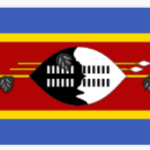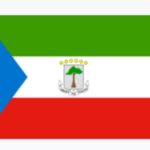Eritrea is a country in the Horn of Africa region of Eastern Africa, with its capital and largest city at Asmara. It is bordered by Sudan in the west, Ethiopia in the south, and Djibouti in the southeast. The northeastern and eastern parts of Eritrea have an extensive coastline along the Red Sea, which gives the country its name, derived from the Latin word for “red”, Erythraea.
Eritrea has a rich and diverse history that spans thousands of years. The area was inhabited by early humans more than one million years ago, and it contains important archaeological sites related to human evolution. Eritrea was also part of the ancient kingdoms of Aksum, Medri Bahri, and the Italian colony of Eritrea. It was colonized by Italy in the late 19th century, and later by Britain and Ethiopia. Eritrea fought a long and bloody war of independence against Ethiopia from 1961 to 1991, which resulted in its recognition as a sovereign state in 1993.
Eritrea is a multi-ethnic country with nine recognized ethnic groups, each with its own language and culture. The majority of the population speaks Tigrinya, a Semitic language that is also widely spoken in northern Ethiopia. Other languages include Tigre, Saho, Kunama, Nara, Afar, Beja, Bilen, and Arabic. Eritrea has no official language, but Tigrinya, Arabic, and English are used as working languages. Eritrea is also home to various religions, such as Christianity, Islam, and traditional beliefs.
Eritrea is a developing country that faces many challenges, such as poverty, drought, human rights violations, and international isolation. The country is ruled by a one-party dictatorship under President Isaias Afwerki, who has been in power since 1993. The country has no constitution, no independent media, no civil society, and no free elections. The government has been accused of committing crimes against humanity, such as arbitrary arrests, torture, forced labor, and indefinite conscription. Eritrea is also involved in border disputes with Ethiopia, Sudan, and Djibouti.
Despite its difficulties, Eritrea has some positive aspects that make it unique and attractive. The country has a diverse and beautiful landscape that ranges from high mountains to lowland deserts. It has a rich and varied wildlife that includes endemic species such as the hamadryas baboon, the Nubian ibex, and the Eritrean warthog. It has a vibrant and resilient culture that reflects its ancient heritage and its modern struggles. It has a proud and hospitable people who are eager to share their stories and their hopes for the future.
Eritrea is a country that deserves to be known and understood by the world. It is a country that has overcome many hardships and still strives for peace and development. It is a country that has a lot to offer and a lot to learn from.








